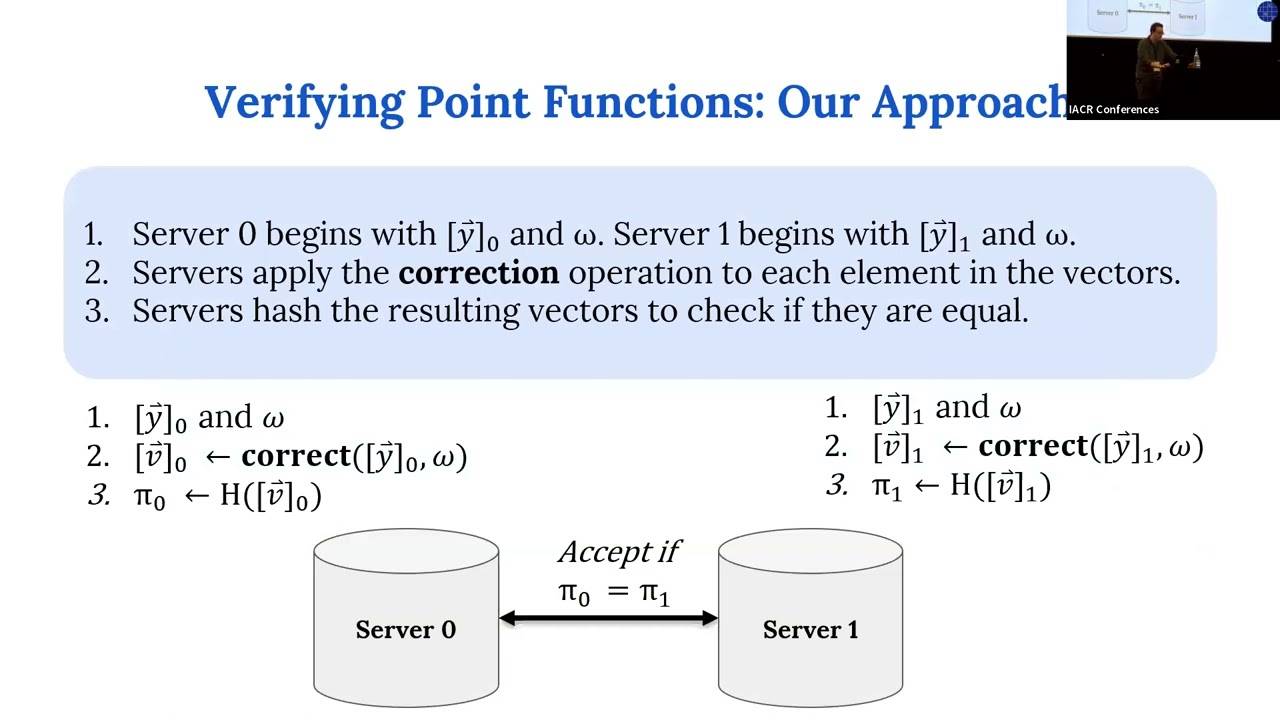Welcome to the resource topic for 2021/580
Title:
Lightweight, Maliciously Secure Verifiable Function Secret Sharing
Authors: Leo de Castro and Antigoni Polychroniadou
Abstract:In this work, we present a lightweight construction of verifiable two-party function secret sharing (FSS) for point functions and multi-point functions. Our verifiability method is lightweight in two ways. Firstly, it is concretely efficient, making use of only symmetric key operations and no public key or MPC techniques are involved. Our performance is comparable with the state-of-the-art non-verifiable DPF constructions, and we outperform all prior DPF verification techniques in both computation and communication complexity, which we demonstrate with an implementation of our scheme. Secondly, our verification procedure is essentially unconstrained. It will verify that distributed point function (DPF) shares correspond to some point function irrespective of the output group size, the structure of the DPF output, or the set of points on which the DPF must be evaluated. This is in stark contrast with prior works, which depend on at least one and often all three of these constraints. In addition, our construction is the first DPF verification protocol that can verify general DPFs while remaining secure even if one server is malicious. Prior work on maliciously secure DPF verification could only verify DPFs where the non-zero output is binary. As an additional feature, our verification procedure can be batched so that verifying a polynomial number of DPF shares requires the exact same amount of communication as verifying one pair of DPF shares. We combine this packed DPF verification with a novel method for packing DPFs into shares of a multi-point function where the evaluation time, verification time, and verification communication are independent of the number of non-zero points in the function. An immediate corollary of our results are two-server protocols for PIR and PSI that remain secure when any one of the three parties is malicious (either the client or one of the servers).
ePrint: https://eprint.iacr.org/2021/580
Talk: https://www.youtube.com/watch?v=98N8qjmogzA
Slides: https://iacr.org/submit/files/slides/2022/eurocrypt/eurocrypt2022/204/slides.pptx
See all topics related to this paper.
Feel free to post resources that are related to this paper below.
Example resources include: implementations, explanation materials, talks, slides, links to previous discussions on other websites.
For more information, see the rules for Resource Topics .
